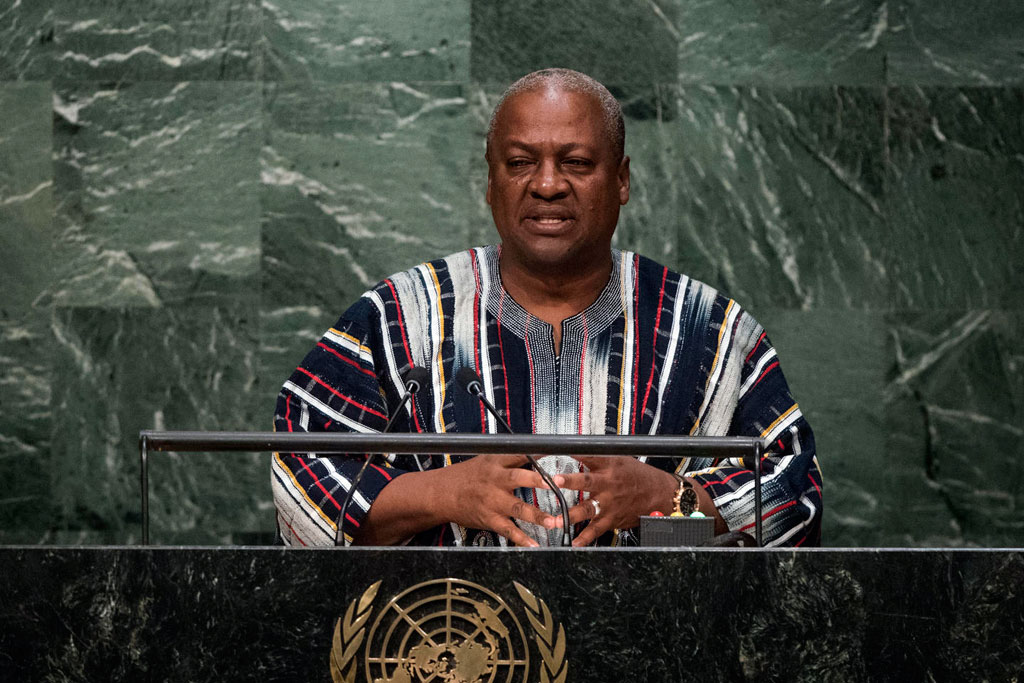
By Kofi Adu Domfeh
Ghana needs $22.6 billion in investments from domestic and international public and private sources to finance its climate mitigation and adaptation actions.
The country’s 31 programme of actions will drive the strategic focus of a “10-year post-2020 enhanced climate action plan” that would be developed after the 21st Conference of Parties (COP21) of the United Nations Framework Convention on Climate Change (UNFCCC) in Paris.
This is contained in Ghana’s Intended Nationally Determined Contributions (INDC) submitted on September 23, 2015 to the UNFCCC, ahead of the deadline.
An INDC is a government’s proposed ‘contribution’ to the UNFCCC as to what it will do about climate change.
The Conference of Parties to the UNFCCC invited parties to communicate to the secretariat their INDCs well in advance of the Paris climate summit in December 2015 “in a manner that facilitates the clarity, transparency and understanding of the INDCs.
As at October 1, there were 108 submitted INDCs on the UNFCCC website, including that of Ghana.
Ghana’s INDC is anchored on the medium-term development agenda (Ghana Shared Growth Development Agenda II – GSGDA 2), National Climate Change Policy and the Low Carbon Development Strategy, as well as the anticipated 40-year long-term development and the universal sustainable development goals.
According to the document, “the proposed measures to achieve the INDC goal will build on existing measures and strategies”.
In all, 20 mitigation and 11 adaptation programme of actions in 7 priority economic sectors are being proposed for implementation in the 10-year period (2020-2030).
The implementation of the actions are expected to help attain low carbon climate resilience through effective adaptation and greenhouse gas (GHG) emission reduction in the priority sectors: Sustainable land use including food security; Climate proof infrastructure; Equitable social development; Sustainable mass transportation; Sustainable energy security; Sustainable forest management; and Alternative urban waste management.
Mitigation Goal
Ghana’s emission reduction goal is to unconditionally lower its GHG emissions by 15 percent relative to a business-as-usual (BAU) scenario emission of 73.95MtCO2e by 2030.
An additional 30 percent emission reduction is attainable on condition that external support is made available to Ghana to cover the full cost of implementing the mitigation action (finance, technology transfer, capacity building).
With this external support, a total emission reduction of 45% below the BUA emission levels can be achieved by 2030.
The total investment cost for implementing the 20 transformational mitigation actions is $9.81 billion – representing 45% of the total investment. Out of this, Ghana will mobilize $2.02 billion (21% of the total investment cost) to finance the two unconditional INDCs. An additional $7.79 billion will be needed to finance the remaining 18 mitigation actions in order to achieve more ambitious emission reductions in the 10 year period.
Adaptation Goal
The long-term goal of Ghana’s adaptation is to increase climate resilience and decrease vulnerability for enhanced sustainable development.
Ghana will require $12.79 billion for adaptation – $4.21 billion (34%) will be mobilized at the national level, whilst the remaining $8.29 billion is the international contribution Ghana is looking for in order to meet the cost of implementing its adaptation actions.
Adaptation under Ghana’s INDC is informed by: good governance and inter-sectoral coordination; capacity-building, the role of science, technology and innovation; adequate finance from both domestic sources and international cooperation; promoting outreach by informing, communicating and educating the citizenry; and adhering to accountable monitoring and reporting.
Ambitious climate resilient economy
Africa and other developing countries remain vulnerable to the impacts of climate change.
In Ghana, the agricultural and food economy are already under threat as local farmers reel under the severity of the weather. Achieving a 2oC global temperature target is ambitious but means for adaptation and mitigation remain critical to the vulnerable.
In preparing and submitting its INDC, Ghana is mindful of its international obligations as a Party to the UNFCCC while simultaneously pursuing a national development agenda that seeks to achieve the long-standing objective of becoming a fully-fledged middle-income economy.
Ghana’s response to the threats posed to this objective by the impacts of climate change has been to pursue coordinated domestic policy actions that in effect seek to develop a policy framework that integrates adaptation, mitigation and other climate related policies within broader development policies and planning.
This is in order to safeguard developmental gains from the impacts of climate change and build a climate resilient economy.
Ghana holds the view that the INDCs should cover mitigation, adaptation, finance technology, capacity building and transparency and agrees with the common position of Africa.










